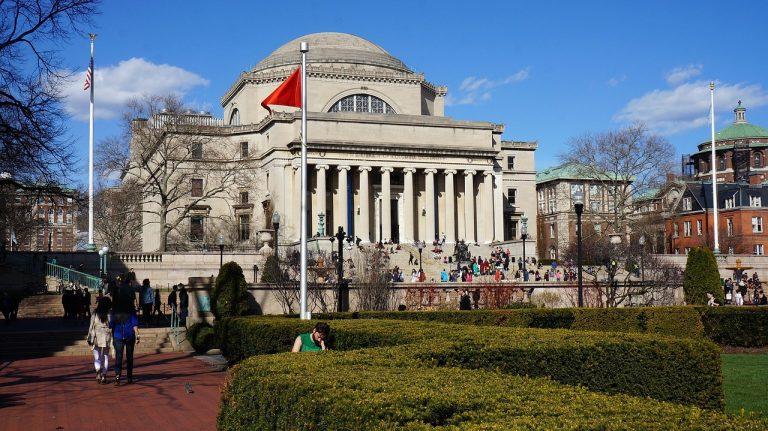Brown University Complete Information
BROWN University

Parents & Guardians
The Centers and Institutes of Brown University are a group of interdisciplinary research centres that bridge the sciences, social sciences, humanities, and arts across the academic disciplines. These centres offer faculty members opportunities to work closely with colleagues from other departments and schools by providing a framework for shared resources, collaborative projects, and interdisciplinary training programs for graduate students and postdoctoral fellows.
About Institutes
Institutes at Brown are interdisciplinary centres that bring together scholars from across the University and beyond to pursue research in a particular area. Institutes typically offer both graduate-level and undergraduate courses, as well as public lectures by visiting scholars. They also sponsor conferences, workshops, seminars and other events focused on specific topics of interest within their fields of study.
- Annenberg Institute
- Brown Arts Institute
- Carney Institute for Brain Science
- Cogut Institute for the Humanities
- Hassenfeld Child Health Innovation Institute
- Institute at Brown for Environment and Society (IBES)
- Institute for Computational and Experimental Research in Mathematics (ICERM)
- Instrumentation for Molecular and Nanoscale Innovation (IMNI)
- Joukowsky Institute for Archaeology and the Ancient World
- Watson Institute for International and Public Affairs
Initiatives
Initiatives are projects that do not have a permanent home in any of our schools or departments. They may be housed in one of our centres and institutes or independent units within Brown's Office of the Vice President for Research and Graduate Studies (OVPRGS).
- Data Science Initiative
- Native American and Indigenous Studies Initiative
- Initiative in Spatial Structures in the Social Sciences
- Global Health Initiative
About Life Sciences
The Life Sciences Center is a multi-disciplinary centre at Brown University, where natural sciences, engineering, and medicine researchers come together to explore questions about living things.
The Institute for Life Sciences (ILS) supports interdisciplinary research across all areas of biology--from molecules to ecosystems--and fosters collaborations between biologists and other scientists in other disciplines interested in understanding life on Earth.
- Center for Alcohol and Addiction Studies
- Center for Children's Environmental Health
- Center for Epidemiologic Research
- Center for Evidence Synthesis in Health
- Center for Gerontology and Healthcare Research
- Center for Health Promotion and Health Equity
- Center for the Study of Children at Risk
- Center for Vision Research
- Mindfulness Center at Brown
- Center on the Biology of Aging
- Brown Center for Biomedical Informatics
- Center for Animal Alternatives in Testing
- Legoretta Cancer Center
- Pandemic Center
About Physical Sciences
The physics department is one of the oldest and largest at Brown. It offers a wide range of courses in experimental and theoretical physics and related topics such as astronomy and mathematics.
- Center for Biomedical Engineering
- Center for Geometric Computing
- Center for Computational Molecular Biology (CCMB)
- Center for Fluid Mechanics, Turbulence and Computation
- Graphics and Visualization Center
- The Lefschetz Center for Dynamical Systems
About Social Sciences
Social scientists at Brown are engaged in research that spans the social sciences, from economics and political science to sociology and anthropology. The Institute for Social Science Research (ISSR) is home to many scholars interested in topics ranging from economic development to global health policy, inequality and poverty to gender relations, or even how people make decisions about their finances.
- Center for Human Rights & Humanitarian Studies
- Center for Statistical Sciences
- Center for Study of Race and Ethnicity in America (CSREA)
- Center for the Study of Slavery & Justice
- Population Studies and Training Center
- Saxena Center for Contemporary South Asia
- Taubman Center for American Politics and Policy
- William R. Rhodes Center for International Economics and Finance
About Humanities
The humanities are a broad academic field, including the study of language, history, and culture. Societies scholars study areas such as archaeology, art history, classics (the study of ancient Greek and Roman civilisations), comparative literature (the study of different languages and literature), cultural studies (how societies define what it means to be human), history (an examination of past events), linguistics (the scientific study of language structure), philology (a branch of linguistics) or semiotics the study of signs and symbols used in everyday life for communication among humans.
- Center for Language Studies
- Center for Latin American and Caribbean Studies (CLACS)
- Center for Middle East Studies
- Center for the Study of the Early Modern World
- John Nicholas Brown Center for Public Humanities and Cultural Heritage
- Pembroke Center for Teaching and Research on Women